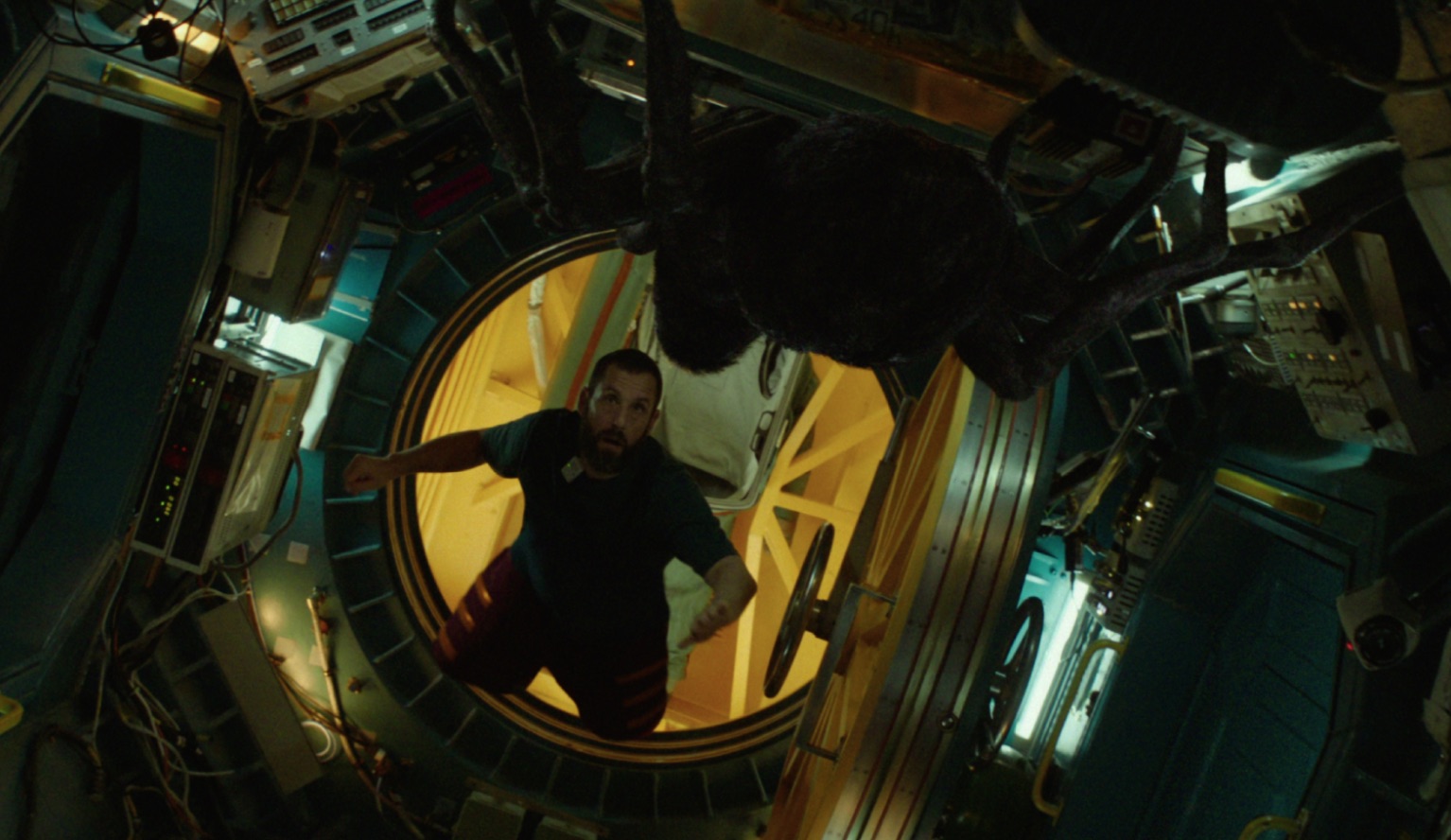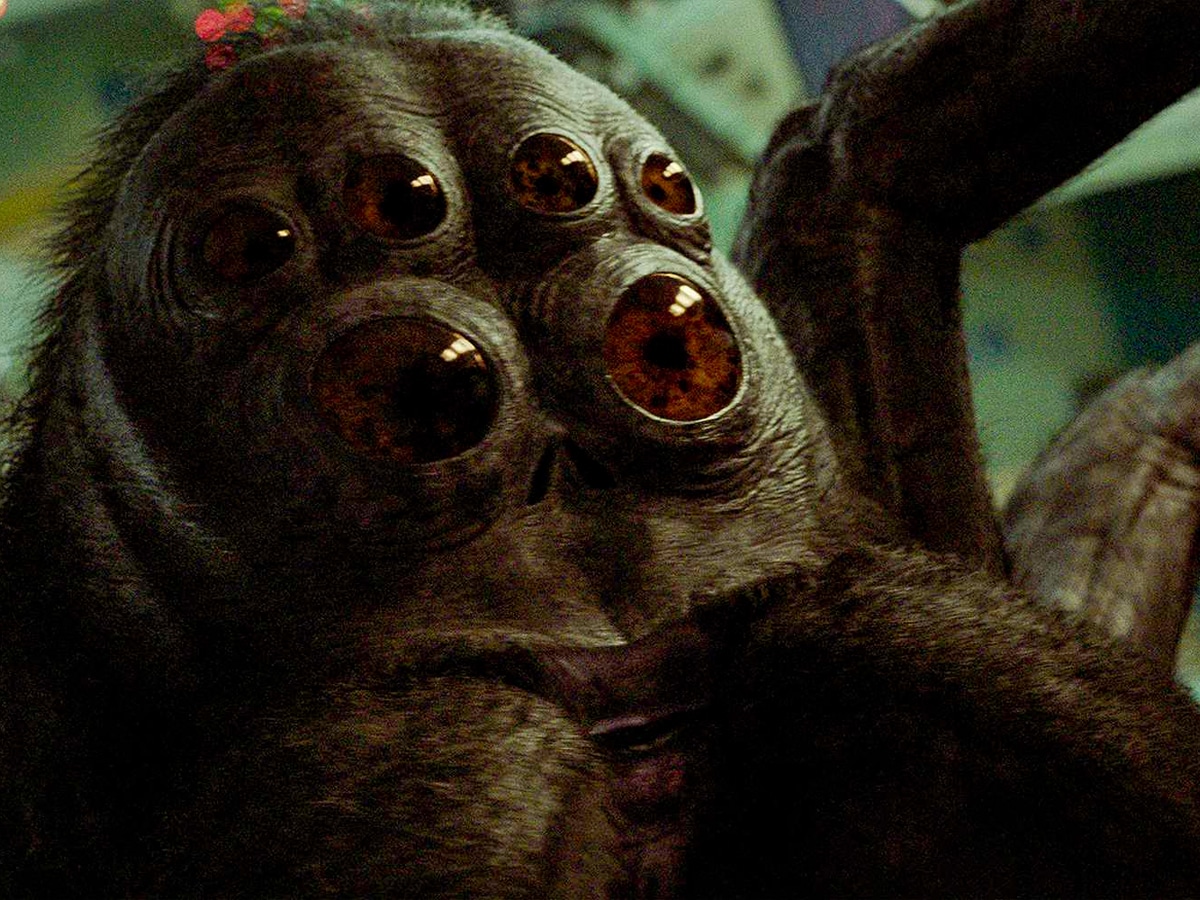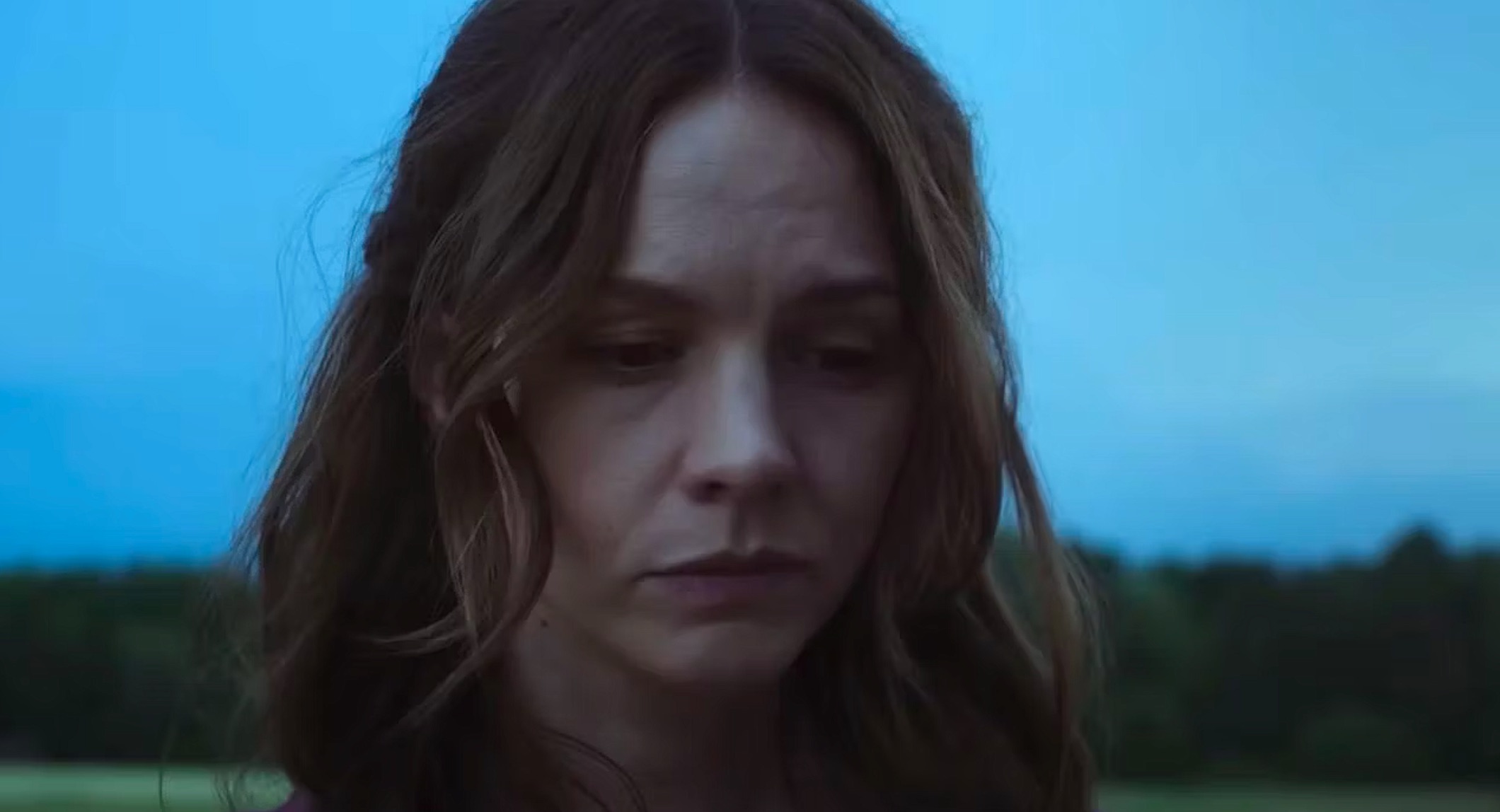In a stripped-down departure from his comedic roles in films like “Happy Gilmore,” “Billy Madison” and “The Waterboy,” Adam Sandler stars in “Spaceman,” Netflix’s existential odyssey into the mysterious chambers of the human heart to deliver a touching examination of our universal need for companionship and connection.
Directed by Johan Renck and based on Jaroslav Kalfař’s 2017 novel “Spaceman of Bohemia,” “Spaceman’s” introspective screenplay was written by Colby Day (“In the Blink of an Eye”).
After a U.S. theatrical release on Feb. 23, “Spaceman” lands on Netflix on Mar. 1, 2024 following the premiere at this week’s 74th Berlin International Film Festival. Anyone with the chance to see “Spaceman” in a large theater should catch a screening to experience the full scope of its breathtaking imagery and overall tone.
Related: Everything we know about ‘Spaceman’
Here in this remarkably resonant piece of science fiction, Sandler portrays Jakob, a Czech cosmonaut who leaves behind a crumbling marriage six months into a solo mission to rendezvous with a mysterious cosmic cloud. As he nears his destination outside the orbit of Jupiter, the toll of extended space travel begins to affect his mental state. An arachnid alien creature, voice by Paul Dano, makes itself known as a strange stowaway that claims to want to aid Jakob in his apparent emotional distress.
Renck is a talented cinephile who perfectly captured the historical horrors of nuclear catastrophe in the Emmy Award-winning miniseries, “Chernobyl.” Here the Swedish filmmaker digs deep into his apparent affinity for old-school meditative sci-fi fare such as Andrei Tarkovsky’s 1972 classic, “Solaris,” Danny Boyle’s “Sunshine” and even Darren Aronofsky’s “The Fountain,” to deliver a provocative Euro-style tone poem.
What follows is an evolving relationship whereby this ancient being, supposedly the last of its kind after fleeing an invaded homeworld, psychoanalyzes Sandler’s wayward voyager adrift in self-doubt and despair over his untethered marriage.

It’s a touching meditation on the nature of isolation, love and loneliness as it relates to astronauts and their natural bonds to Earth. The spidery guest acts as a sort of extraterrestrial Jiminy Cricket in the role of Jakob’s bruised conscience and spiritual guide that could possibly be either a real-life alien bonding with a human, or simply a hallucinatory projection of his Jakob’s fears, insecurities and mortality.
Shedding his standard comic demeanor that has attracted fans for most of his Hollywood career, Sandler turns in a decidedly somber yet enlightened portrait here as the lone cosmonaut, who is literally and figuratively lost as his spacecraft encroaches upon a cosmic miracle while his marriage deteriorates back home.
As the voice of the multi-eyed monster, Dano injects an extraordinary depth of feeling with his methodical HAL-9000-like delivery and their intimate interactions take on a trippy quality that permeates the odd relationship of self-reflection and discovery.
Surprisingly transcendent and utterly engaging, “Spaceman” sees Sandler eclipsing his best dramatic gigs to date in “Uncut Gems,” “Hustle,” and “Punch-Drunk Love.”

Molding this metaphysical masterpiece into something even greater than its components is imaginative composer Max Richter’s affecting ambient score that infuses the film with a melancholy mood and trance-like state similar to arcade video game themes of the ’80s and ’90s. Fans of the longtime public radio program “Hearts of Space” will be overjoyed by the electronic soundscape Richter contributes.
Sandler puts in the hard work hanging on harness wires to simulate microgravity to capture a troubled soul fearful of the disintegration of his wife’s love who remains on Terra Firma carrying their unborn child at a remote sanctuary for single moms.
Dano, best known for his electrifying preacher role in director Paul Thomas Anderson’s “There Will Be Blood” and chilling portrayal of The Riddler in “The Batman,” provides the eerie mellifluous voice for this benign being in a rare performance that cannot be understated. Dano brings a haunting compassion to the sentient arachnid beast that Jakob affectionately names Hanuš, after a Czech clockmaster incorrectly believed to have invented the Prague Astronomical Clock.
As the film cuts back and forth between the starship, ground control, and Jakob’s pregnant wife, we learn of the cumulative pain his absences caused over the years.

Carey Mulligan (“Maestro,” “Drive”) is exceptional as Jakob’s better half, Lenka, a disillusioned wife retreating into herself while struggling with the inevitability of their breakup. A recorded message for her far away husband announcing her intentions to leave him is held back by Isabella Rossellini’s mission control character, Commissioner Tuma, due to Jakob’s precarious emotional condition and the importance of his completing this deep space “Chopra Cloud” collection endeavor.
Jan Houllevigue (“David Bowie: Blackstar”) and his distinguished production design team provide realistic details and authenticity to the spaceship’s confining interiors that mirror the complex labyrinth of Jakob’s mind. These striking sets are accented with user interface screens and technical readouts that offer an old-fashioned blend of both analog and digital technology that defy a timeline, all beautifully shot by ace cinematographer Jakob Ihre, who collaborated with Renck on HBO’s “Chernobyl.”
The finale’s intermingling of luminous plumes of space dust and swirling stars inside the dreamy purple nebula envelop viewers as Jakob and Hanuš part in ways that allow each to fulfill their fates in a two-tissue farewell amid the far reaches of space.
Fortified with superb performances and a wondrous life affirming storyline, “Spaceman” earns a respected spot in the current resurrection of cerebral sci-fi.



